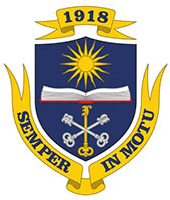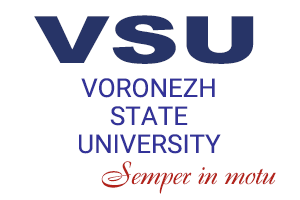Laboratories (Faculty of Geography, Geoecology, and Tourism)
- Research and Training Laboratory of Geoinformation Mapping
- Resource Centre of Radioecological Security
- Research and Training Laboratory of Ecology and Analytics
- Research and Training Laboratory “Vascular Plant Herbarium – VORG”
- Hydrometeorological Observatory
Research and Training Laboratory of Geoinformation Mapping
Industrial partners
- Cartography laboratory of the Institute of Geography of the Russian Academy of Sciences (head of the laboratory – A.A. Medvedev)
- Moscow State University of Geodesy and Cartography (the Department of Cartography)
Research area
Geoinformation and cartography, cartographic research methods
Laboratory equipment
- Desktop PCs S775 Intel Core 2; Pentium 3
- A4 and A3 flatbed scanners
- HP – DJ 500/800 plotter
- BQ MP 575 multimedia projector
Available research methods
- Spatial analysis and modelling by means of geoinformation systems
- Analysis of the Earth distance probing data (aerial photography)
Challenges
Determining the geographic (spatial) properties of natural and anthropogenic processes in natural and social systems of the Central Black Earth Region, which affect the environmental conditions and natural resource management in the region
Major projects
- Annual national research conference “Geoinformation and cartography in Russian regions” (2009-2018)
- Publishing projects Medical and environmental atlas of the Voronezh Region (2010), Ecological-geographic atlas of the Voronezh Region (2013)
- Grant of the Russian Foundation for Basic Research No. 14–05–31329 mol_a “Developing a model for environmental quality indication by means of GIS-technologies”, Head Researcher – S.A. Epryntsev
Resource Centre of Radioecological Security
Research area
Radioecology and automatic environmental design
Major projects
- Project 530644-TEMPUS‑1–2012–1-ES-TEMPUS-JPCR “HUMAN Security (environment, quality of food, public health and society) on Territories Contaminated by Radioactive Agents”, coordinator – University of Cordoba (Spain); Head Researcher at VSU – S.A. Kurolap (2012–2016).
- Commercial contract research No. 08108/378DS12 of 19.10.2012: “Analysing the demographic situation at the construction site of Novovoronezh Nuclear Power Plant-2” for ОАО Rosatomenergopoyect, Head Researcher – S.A. Kurolap (2012)
- Commercial contract research “Analysing the demographic situation at the supposed construction sites of Smolensk Nuclear Power Plant-2”, for ОАО Rosatomenergopoyect, Head Researcher – S.A. Kurolap (2013)
Laboratory equipment
- Asus Core i5 – 3570/20
- BenQ multimedia projector
- Samsung laptop
- Tripod mounted 152x152 projection screen
- Whiteboard
- Radiometer
- Dosimeter DKG-07, MKS-01SA-1B “Drozd”
- Acer multimedia projector
Available research methods
- Computer processing of environmental geo data applying mathematical statistics methods and special software “Ecolog”
- Measurement of radiation parameters of environmental objects
Challenges
- Radioecological monitoring
- Automatic environmental design
Research and Training Laboratory of Ecology and Analytics
Research area
Ecological and analytical study of the state of the environment (analysis of air, water, soil, bottom sediments in order to identify the presence of dangerous chemicals), bioindication studies
Laboratory equipment
- Electronic analytical scales
- Electronic scales
- Programmable muffle furnace
- Laboratory oven
- Thermostat
- Heating panel
- Water biotesting laboratory
- Voltammetric analyser TA-4
- pH-meter
- Photoelectric photometer KFK-3-01
- NKV field lab
- Distillator
- Autoclave
- Centrifuge
Available research methods
- Gravimetric method
- Photometric method
- Titrimetric method
- Voltammetric method (for identifying heavy metals)
- Potentiometric method
- Water and soil biotesting
- Bioindication methods
Challenges
- Defining the chemical composition of fresh, natural, and waste water
- Defining the total content and active forms of chemical elements in soils
- Determining the level of toxicity of water and soils by means of biotesting
- Assessing the vitality of woody plants by means of bioindication methods
Major projects
- Grant of the Russian Geographical Society and the Russian Foundation for Basic Research No. 17–05–41072 “Geoinformation support of regional systems for medico-ecological monitoring of large industrial centres”, Head Researcher – S.A. Kurolap (2017–2019)
- Commercial contract research “Studying the vegetation resources at “Reconstruction of KGMO-1 in the territory between CS Noginsk and CS Yakhroma” for DOAO Gasproyetengineering, Head Researcher – S.A. Kurolap (2017)
- Grant of the Russian Foundation for Basic Research No. 17–05–00569 “Studying the functioning of ecological and geochemical background and health risks to people living in building and industrial areas of the Central Black Earth Region”, Head Researcher – S.A. Kurolap (2017–2019)
Research and Training Laboratory “Vascular Plant Herbarium – VORG”
Industrial partners
- Komarov Botanical Institute of the Russian Academy of Sciences (St.Petersbutg)
- Tsytsin Main Moscow Botanical Garden of Academy of Sciences (Moscow)
- Institute of Ecology of the Volga basin of the Russian Academy of Sciences (Tolyatti)
- Lomonosov Moscow State University (Moscow)
- Institute of Geography of the Russian Academy of Sciences (Moscow)
- Institute of Steppe of the Ural Division of the Russian Academy of Sciences (Orenburg)
- Societas Biologica Fennica Vanamo, Helsinki, Finland;
- Kuprevich Institute of Experimental Botany of the National Academy of Sciences of Belarus (Minsk, Belarus)
Research area
Biogeography, geoecology, floristics, biodiversity of natural and urbanised ecosystems, steppe protected areas in Northern Eurasia
Laboratory equipment
- S775 Intel Core 2 desktop PC
- Binocular
- Herbarium cabinets (7)
- Freezer-refrigerator
- 20,590 samples of herbarium materials
Available research methods
- Biogeographical analysis
- Traversing
- Floristic and geobotanical method
- Cartographic methods
Challenges
Study and research projects, PhD research, grants of the Russian Foundation for Basic Research, collaboration with the leading Russian and international research institutions
Major projects
- Creation of Herbarium VORG, which includes 20,590 plant species
- Grants of the Russian Foundation for Basic Research
- International grant No. 14–04–90403 “Assessing the diversity and structure of the adventive flora of the Eastern Europe forest-steppe in order to conserve the ideal function of the specially protected territories” FSFEI HE Voronezh State University Head Researcher – A.Ya. Grigorievskaya (2014–2015)
- Project No. 13-05-97512 “Environmental dangers of invasive plants species of man-transformed geosystems as the reason for the creation of the Black Book of Extinct Plants of the Voronezh Region” FSFEI HE Voronezh State University Head Researcher – A.Ya. Grigorievskaya (2013–2015)
- Project No. 13–05–00356 “Biodiversity and ecological framework of urban agglomerations as a sustainable development factor (case study of Voronezh Region). FSFEI HE Voronezh State Forest Engineering University Head Researcher – O.S. Lisova (2013–2015)
 Hydrometeorological Observatory
Hydrometeorological Observatory
Industrial partners
Voronezh Centre for Hydrometeorology and Environmental Monitoring, a branch of the Central Black Earth Region Department of Hydrometeorology and Environmental Monitoring
Research area
Hydrometeorologal studies: studying the microclimate of the urban area, studying the thermal and radiation regime of the geological substrate of various types of subsoil characteristic of the Central Black Earth Region
Laboratory equipment
- Meteorological station
- Automatic meteorological station
- M-49 meteorological station
- Wild's anemometer
- Handheld anemometers ARI-49
- MS-13
- Aneroid barometer
- Adjustable cistern mercurial barometer SR-A
- Liquid-in-glass meteorological thermometers
- Clouds atlas
- Psychrometric tables
- Scientific, reference, information, cadastral materials concerning water bodies in Russia, their state and regime
Available research methods
- Receiving satellite hydrometeorological data
- Performing meteorological and actinometric observations
- Accumulation, storage and summary of meteorological data
Challenges
Observation of numerous meteorological objects:
- atmospheric pressure
- air temperature, temperature of soil surface, and temperature of subsoils at the depth of up to 2.4 meters
- frost line
- air humidity
- total and lower cloud cover
- state of the Sun orb
- atmospheric effects
- amount and duration of precipitation
- ground visibility and cloud base
- wind speed and direction
- sunshine duration
- snow cover depth
Major projects
Grant of the Russian Foundation for Basic Research No. 11-05-00079-a “Medical-geographical analysis of the public health rate as related to climate change in the Central Black Soil Region in the 21 century”, Head Researcher – S.A. Kurolap (2011–213)
Voronezh State University • 1997–2025

